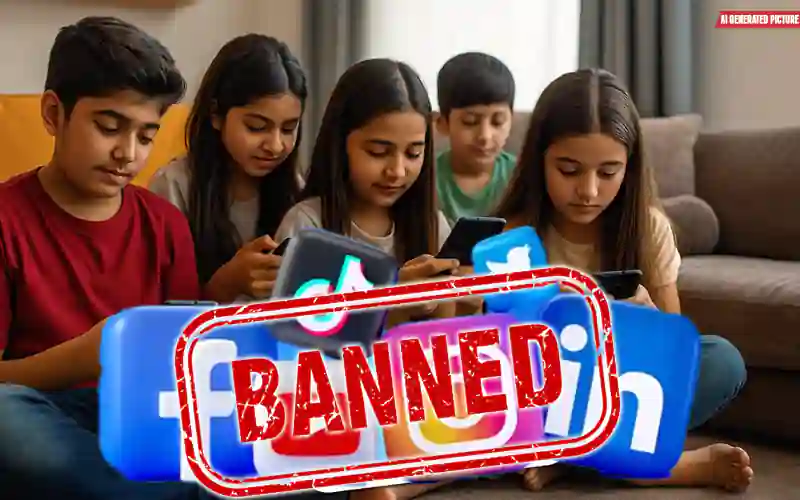Introduction of the Social Media (Minimum Age for Users) Bill 2025
In a move aimed at safeguarding young users and promoting online safety, Pakistan has introduced the Social Media (Minimum Age for Users) Bill 2025 in the Senate. The proposed law seeks to establish a minimum age requirement for social media usage, setting the bar at 16 years. If passed, this would prohibit children under the age of 16 from creating accounts on popular platforms such as Facebook, Instagram, TikTok, and WhatsApp.
This legislative initiative reflects growing concerns worldwide about the detrimental effects of early exposure to digital platforms, ranging from mental health issues to cyberbullying.
Objectives of the Proposed Law
The primary objective of the bill is to protect minors from harmful digital exposure. Policymakers argue that unrestricted use of social media at a young age can negatively impact children’s mental and emotional health. Among the issues highlighted are:
- Rising cases of anxiety, depression, and loneliness linked to excessive screen time.
- Exposure to inappropriate or harmful content, including misinformation and online predators.
- Increased risks of cyberbullying and privacy violations.
- Early onset of digital addiction, which disrupts healthy lifestyle habits.
By enforcing age restrictions, the government hopes to create a safer online environment that prioritizes the well-being of minors.
Compliance Measures for Social Media Companies
The bill places significant responsibility on social media companies, requiring them to enforce stricter verification systems. These systems must be capable of detecting and blocking underage users who attempt to create accounts. Failure to comply will attract heavy penalties.
According to the proposed draft, companies could face fines ranging from Rs50,000 to Rs5 million if they fail to uphold the age restrictions. Additionally, individuals who assist minors in bypassing these rules may face penalties, including up to six months of imprisonment.
This clause underlines the seriousness of the government’s intent and aims to ensure that social media companies actively participate in creating a safer online ecosystem.
Enforcement Role of the Pakistan Telecommunication Authority (PTA)
The Pakistan Telecommunication Authority (PTA) has been designated as the key enforcement agency under the proposed law. The PTA will be empowered to:
- Monitor and block accounts belonging to underage users.
- Impose fines on non-compliant companies.
- Draft and implement additional rules for smooth enforcement.
By involving the PTA, the government aims to establish a clear framework for regulation and accountability, ensuring that the law is not merely symbolic but actionable.
Real-World Case Highlight
The debate around social media regulation gained additional attention following the recent suspension of a young content creator’s account. On August 23, 16-year-old Talha Ahmed’s Instagram account was suspended for allegedly breaching the platform’s Terms of Use, particularly concerning eligibility criteria.
Despite Ahmed’s content often carrying “positive and progressive” messages, he faced a 180-day countdown to appeal the decision. However, the account was restored within 24 hours after review by the platform.
This incident underscores the complexities of enforcing age restrictions, especially in cases where young users contribute valuable or uplifting content. It also highlights the potential friction between safeguarding rules and the opportunities social media provides for creative youth.
Broader Implications of the Bill
If passed, the Social Media (Minimum Age for Users) Bill 2025 could set a precedent for digital governance in Pakistan. It may also align the country with global discussions on child online protection. While the law seeks to protect minors, it raises questions about:
- The effectiveness of age-verification systems in preventing underage access.
- The role of parents and guardians in monitoring children’s online behavior.
- The balance between protecting young users and allowing creative opportunities for emerging talent.
The introduction of this bill signals Pakistan’s determination to address pressing concerns around youth safety in the digital age.
